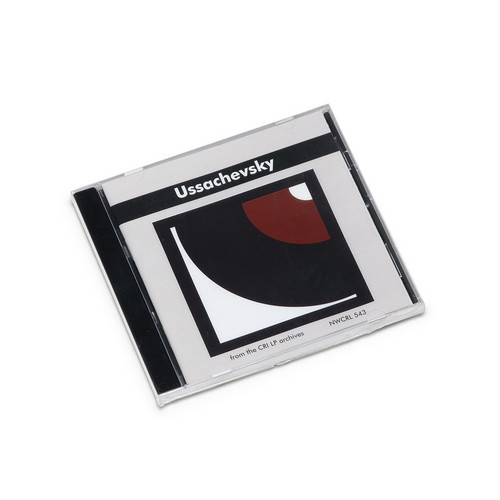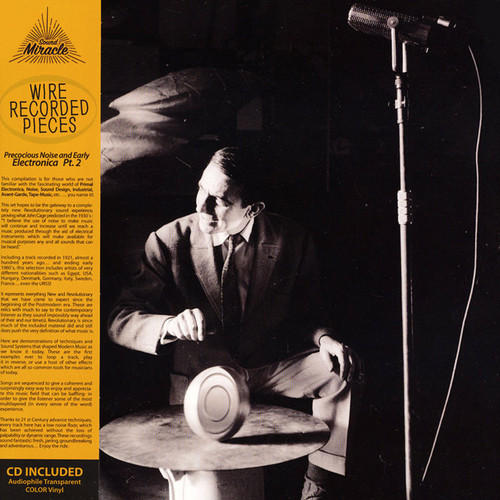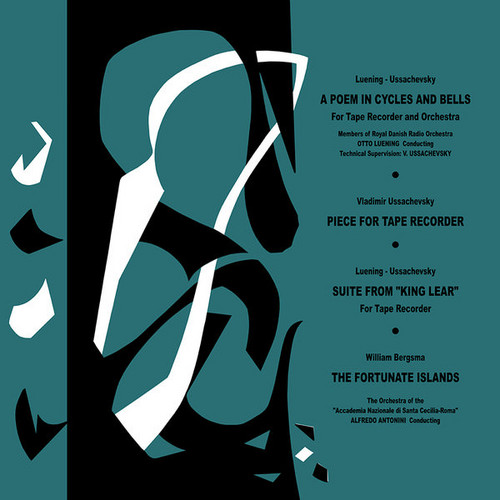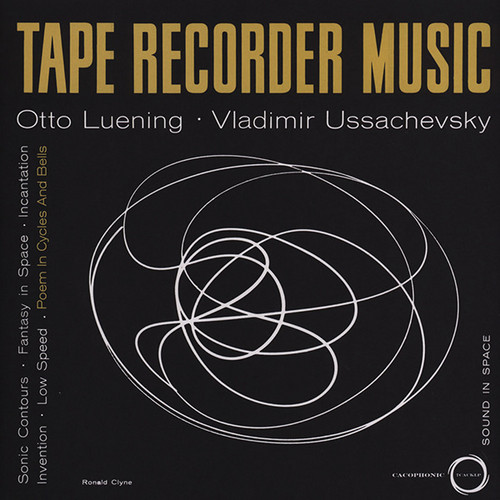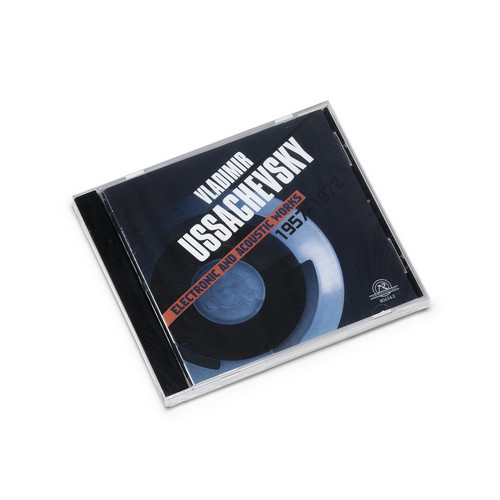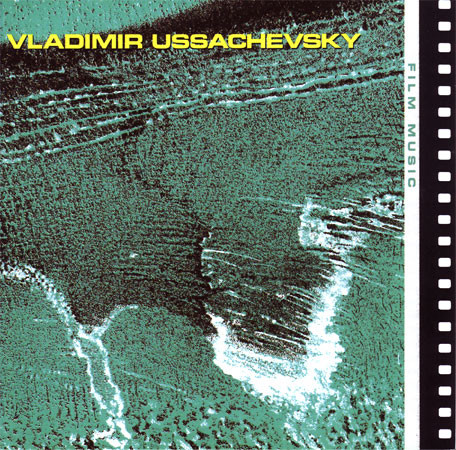Vladimir Ussachevsky
Vladimir Kirilovitch Ussachevsky (Hailar, Manchuria, November 3, 1911 – New York, New York, January 2, 1990) was a composer, particularly known for his work in electronic music. His early, neo-Romantic works were composed for traditional instruments, but in 1951 he began composing electronic music. He served as president of the American Composers Alliance from 1968 to 1970 and was an advisory member of the CRI record label, which released recordings of a number of his compositions. Recordings of his music have also been released on the Capstone, d'Note, and New World labels.
Vladimir Kirilovitch Ussachevsky (Hailar, Manchuria, November 3, 1911 – New York, New York, January 2, 1990) was a composer, particularly known for his work in electronic music. His early, neo-Romantic works were composed for traditional instruments, but in 1951 he began composing electronic music. He served as president of the American Composers Alliance from 1968 to 1970 and was an advisory member of the CRI record label, which released recordings of a number of his compositions. Recordings of his music have also been released on the Capstone, d'Note, and New World labels.
Dialogues and Contrasts / Colloquy
The title Dialogues and Contrasts describes the nature of the exchange which takes place between the performer and the materials committed to tape. In the first movement the exchange is more in the nature of an argument. Though initially each side appears to favor an independent thematic course, as the movement progresses the performers engage in direct response to the statements on tape. The second movement is more subdued and reflective, with many solo passages, particularly from the French ho…
Wire Recorded Pieces
**Audiophile transparent clear vinyl; Includes CD** Subtitled 'Precocious Noise and Early Electronica Pt. 2' it's an astonishing compilation with fully remastered soud, for those who are not familiar with the fascinating world of primal electronica, noise, sound design, industrial, avant-garde, tape-music, etc. Features Johanna M. Beyer, Bengt Hambraeus, Franco Evangelisti, Remi Gassmanny, Vladimir Ussachevsky, Halim El-Dabh, Pierre Henry, Else Marie Pade, Herbert Eimert, The Blue Men, György Li…
A Poem In Cycles & Bell & Other Music For Tape Recorder
You would never believe this record to be a relic from a past of electronic music that happened before anybody even spoke about rock music. In 1957 this compilation of electronic and orchestral compositions by the three masterminds Otto Luening, Vladimir Ussachevsky and William Bergsma saw the light of the stars for the first time and has become a cult piece among lovers of electronic space music since then, despite the fact that only the first side features the so called tape compositions of Lu…
Tape Recorder Music
Originally released in 1955. One of the very earliest and most important examples of electronic tape music to be pressed on vinyl (alongside the Radiodiffusion-Télévision Française musique concrète compilations in France and Jim Fassett's comedic 1953 Strange to Your Ears novelty record), this privately pressed 1955 10" was released on a one-off label owned by businessman Gene Bruck to document a custom-made performance at the Museum of Modern Art in New York in 1952. This facsimile edition of t…
Vladimir Ussachevsky: Electronic and Acoustic Works 1957- 1972
16-page booklet including liner notes in English. This composer portrait is dedicated to Vladimir Ussachevsky (1911–1990), a pioneering figure in electronic and choral music. The album features six of his groundbreaking works in electronic music alongside two significant choral pieces, highlighting the breadth of his creative output. The final two works on the CD, Three Scenes from The Creation (1960; rev. 1973) and Missa Brevis (1972), showcase Ussachevsky’s innovative use of the human voice.Th…
Film Music
Ussachevsky was one of the most significant pioneers in the compositon of electronic music, and one of its most potent forces. He produced the first works of “tape music,” a uniquely American synthesis of the French musique-concrète and the German pure electronic schools. He co-founded the Columbia-Princeton Electronic Music Center in 1959 and directed its course for the next twenty years as the leading electronic music studio in the United States. This release couples two of his most powerful a…
